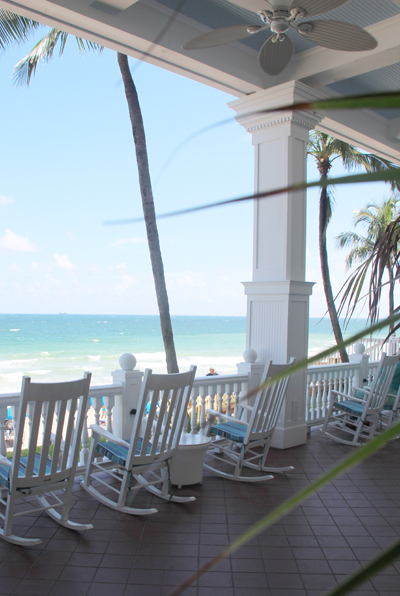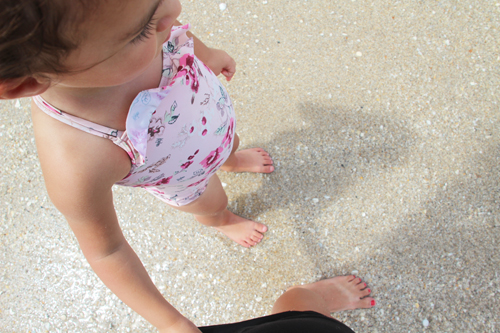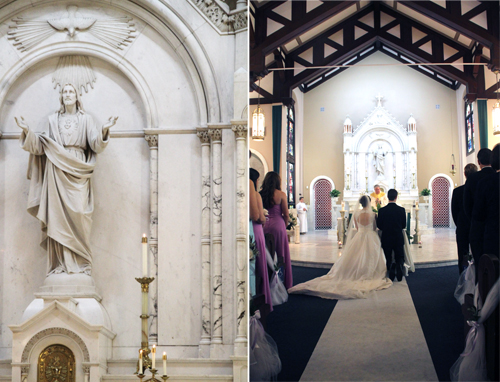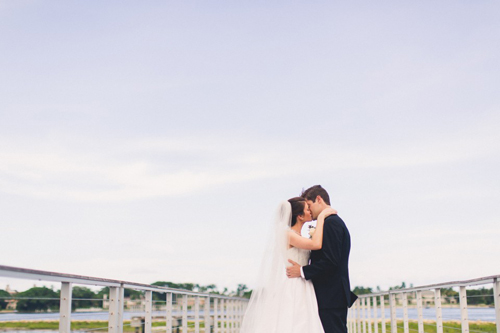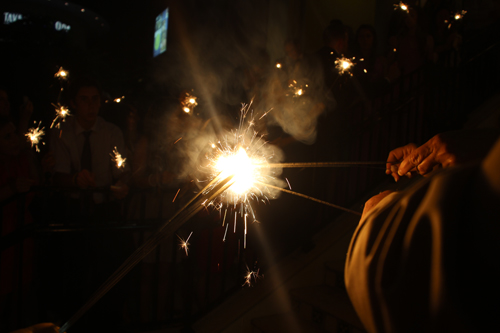There are so many beautiful and quirky characteristics about older homes. They are usually purposefully built with unique architectural details and great craftsmanship, and they carry a charm about them that is very appealing. Our 1930s Spanish-style bungalow has arched ceilings and soffits (I love the one in the dining room…), lathe and plaster walls, rope and pulley windows, solid wood doors and original tile and hardwood floors. We could tell when we started moving walls that this home was built by hand by someone with tools of a different caliber using stronger materials (the wood is from old-growth pine that isn’t available today, the plaster walls inches thick) and we know that this baby is going to be standing for a long time.
Oh but the updates! Old homes can come with a list of needs (lets call it homeowner love), including knob and tube wiring, old pipes, lead paint, broken water heaters, outdated ac and heating units – if any, asbestos…
There are certain topical updates though that are easy to take care of right off the bat, and they can make a home feel a bit more modern and a bit more friendly! Here is part 1 in a series that highlight what I thought made a big difference for us (ps you can find part 2 right here).
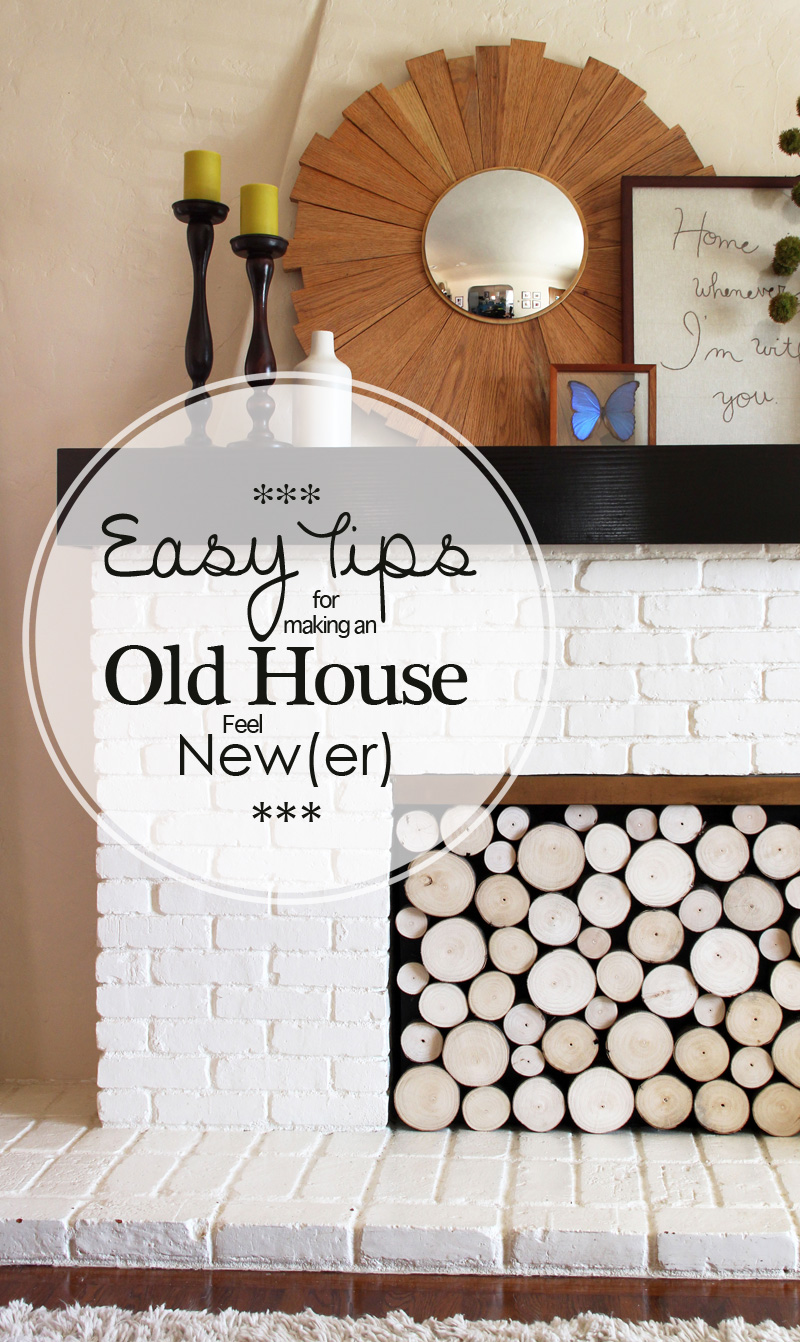
Add crown & floor molding to a space.
A lot of older homes in our area have quarter round molding – that little toe kick detail where the floor meets the walls – but little else. It’s amazing though what crown and floor molding can do to help make a room feel complete!
Here’s what the girls’ room looked like when we bought the house (previous owner’s furniture):
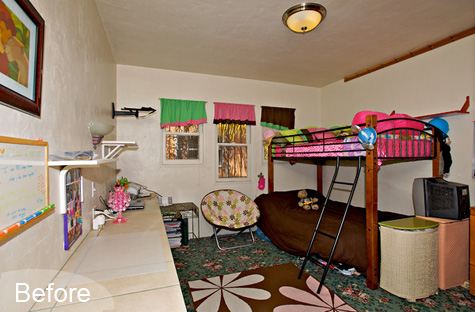
We turned it into a nursery in 2010 and added a thick 3″ line of floor molding:
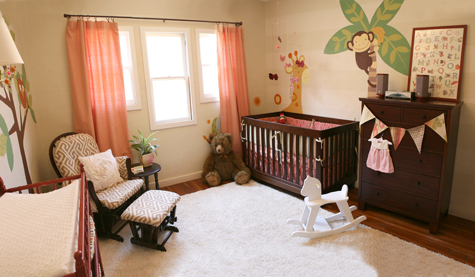
Now that we are transforming it into a room that will fit two little girls, my number one must-do item (crazy as it sounds) was to add crown molding. And I especially love the look of a solid wood craftsman-style molding.

Doesn’t the room feel that much more clean and finished with that bright white footer and header in the space? It’s almost as if they bookend the color on the walls.
Faux Molding
We weren’t in the budget for finish-type work when we first moved into the house, so during our initial painting frenzy, I added a rim of faux molding in our living and dining space. It was pretty easy: simply tape off a chunk of wall about three inches up all along the room and paint that strip a bright, clean white. Five years later and this faux molding is in need of real floor molding (or a new coat of paint), but it definitely helped to update the space.
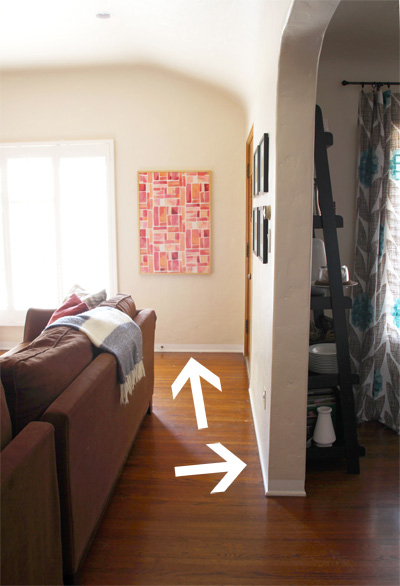
Give your fireplace a face lift.
Giving our fireplace a big update is on our list of todos… maybe we’ll get to it in 2015. Quick fixes for an outdated fireplace though include a fresh coat of paint over older bricks, a thoroughly cleaned out firebox (if you have a wood burning fireplace) or a simple boxed out mantle. Here’s how she looked when we moved in:
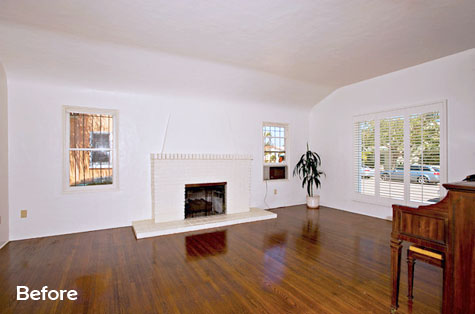
We added the mantle two years ago. Then when we had to turn off the gas to our fireplace, I added a faux screen of stacked wood (it’s really just about 3″ deep). To me it keeps the allusion of a warm and friendly fireplace as a central focus of our living room, the alternative empty black box was less appealing. A plus to a fireplace facade is that it can be removed when we’re ready to turn back on the gas and use this baby again.
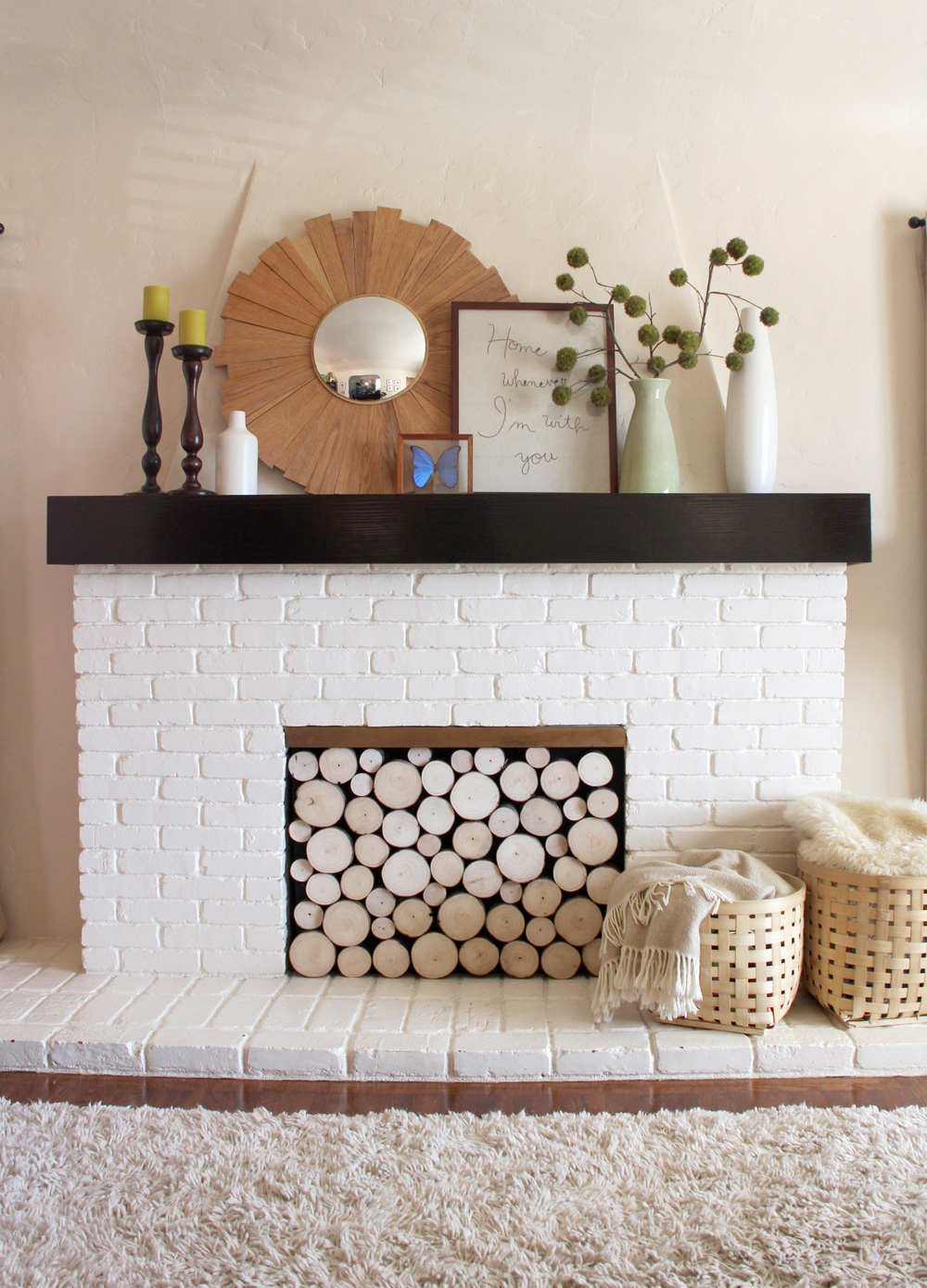
This Old House featured the screen in the July issue of their magazine, and the step-by-step again on their website.
Update old mirrors.
I’ve never been a fan of those all-wall giant mirrors that are in many older bathrooms, and to me they can date a space pretty quickly.
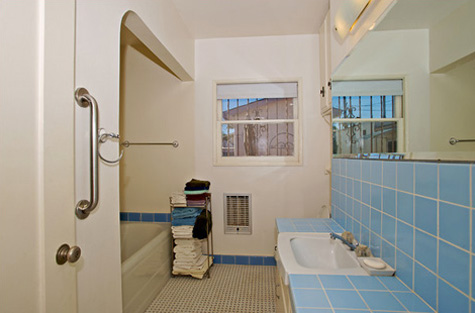
We are saving up to really overhaul this bath, but my quick fix to modernize it initially was to tear out that giant mirror and to frame two smaller mirrors from Lowes in Aaron Brothers frames (during their ‘Buy One Get One For a Penny’ sale).
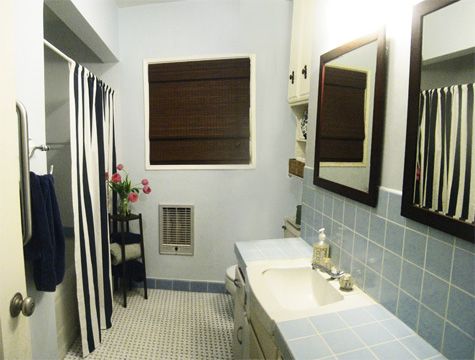
Quick, easy and cheap.
Back tomorrow with part 2! And a few more ideas on what has made our home feel like an older-but-modern, meets-our-needs home.



